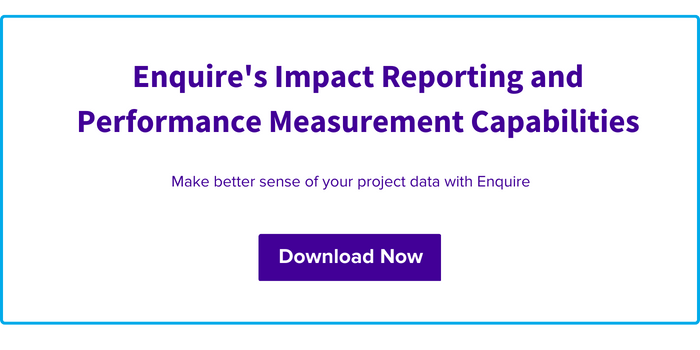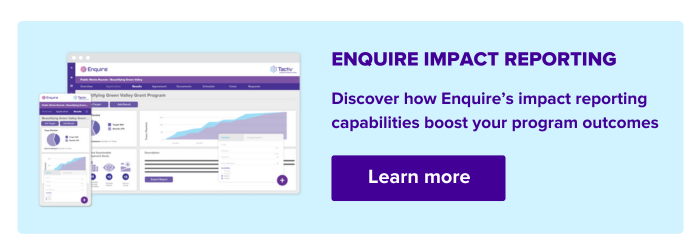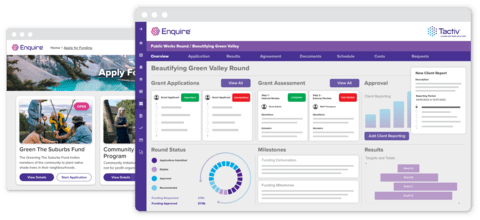How is social impact investing different?
Social impact investing is the act of making financial investments in companies, sectors and initiatives that intend to create social and environmental outcomes alongside financial outcomes. Social impact investing sees different sectors – governments, NGOs, investors, and communities – put capital towards the common good. Comparatively, regular investment opportunities solely focus on financial outcomes, which could have harmful outcomes for society and the environment.
A combined focus on social and financial outcomes can make investing more attractive to certain sectors, groups or organisations. Additionally, it promotes sustainable outcomes and win-win situations. Above all, social investment promotes circular economy principles to equip society for future challenges and shifting variables.

Why is social impact investing important?
Social impact investing is important for several reasons:
Addressing pressing issues
It provides a means to channel financial resources towards solving social and environmental challenges, such as poverty alleviation, access to education and healthcare, and more. By targeting these issues directly, impact investing can contribute to positive change and help build a more equitable and sustainable world. The dual focus on both social and financial outcomes means that it investing opportunities like these become appealing to a more broad range of investors as well.
Mobilising private capital
Social impact investing taps into the power of private sector capital to support initiatives that might otherwise struggle to secure adequate funding. By attracting investments from individuals, corporations, and institutions, impact investing expands the available resources for addressing societal issues beyond traditional philanthropy or government funding. Blended approaches where different types of funding are combined to fund programs, such as pooled funding initiatives, become more common and important as funding source in social impact investing. AVPN’s pooled funds are a great example of this.
Driving innovation and scalability
Impact investing encourages the development of innovative solutions that can have a broad and scalable impact. The emphasis on measurable outcomes and positive social or environmental performance incentivises entrepreneurs and organisations to create and scale sustainable business models that address societal challenges effectively.
➔ See how Enquire Fund Management and Impact Reporting Software streamlines social programs [free one-pager]
Who is it for?
Social impact investing involves a range of stakeholders. There are the funders, the organisations managing and administering funding, there’s the beneficiaries and there is the (wider) community and environment. Not all these parties will take part in managing social impact investing, but they will reap the benefits of it.
Funders
Funders have a very outcomes-focused approach to social impact investing. They put capital towards opportunities designed to create positive financial impact as well as community or environmental impact. Achieving these outcomes, backed by solid reporting, is their ultimate goal and allows them to decide to provide future funding.
Administering organisations
Organisations managing projects will be the gatekeepers on whether the intended goals are met, often using systems to administer funding and manage and measure projects, milestones, deadlines and costs. These organisations administering funds intended for social impact investing are often in the government, non-profit or educational sector, or foundations, charities or organisations running CSR programs. Tracking the details of such programs is important to monitor how they’re tracking against their goals, continuously improve and demonstrate impact to funders, communities and other stakeholders.
Beneficiaries
These are the organisations receiving funding after meeting certain criteria. Those funds need to be used to complete approved projects in line with the social investing goals. Regular progress reporting against set KPIs ensures reliable tracking and insights for better results.
The best approach towards social impact investing
The key to social impact investing lies in balancing financial returns with measurable social and environmental impact. The following elements are crucial for successful impact investing:
Intentionality
Investors must have a clear intention to generate positive impact through their investments. This involves defining specific social or environmental goals and aligning investment decisions accordingly. Impact measurement and management frameworks help assess the impact of investments and ensure accountability.
Collaboration
Effective social impact investing often requires collaboration among various stakeholders, including investors, nonprofits, governments, and communities. Partnerships and networks facilitate knowledge sharing, resource pooling, and the development of collective solutions to complex societal challenges. Technological solutions can provide great tools to enhance collaboration in a structured way to enforce successful outcomes.
➔ Read here how Enquire’s workflows enable collaboration and engagement with stakeholders [3 min read]
Measurement and reporting
Robust impact measurement methodologies enable investors to track and evaluate the social and environmental outcomes of their investments. Transparent reporting of these results enhances credibility, facilitates learning, and supports the growth of the impact investing field.
Tracking, measuring, and reporting on the outcomes of social impact investing require a systematic approach to assess the effectiveness of investments in generating social and environmental impact. Here are some commonly used and important practices for tracking, measuring, and reporting on social impact investing:
- Impact Frameworks: Impact frameworks provide a structured approach to define and measure impact. Some popular frameworks include the Impact Management Project (IMP), Global Impact Investing Network (GIIN) IRIS+, and Social Return on Investment (SROI). These frameworks offer standardised metrics, indicators, and guidelines to assess and compare the social and environmental performance of investments. Standard impact frameworks can be used, but it’s also possible to establish framework yourself suited to your organisational needs.
- Key Performance Indicators (KPIs): It’s best practice to identify specific KPIs that align with their investment objectives and the targeted social or environmental outcomes. These indicators may include metrics related to poverty reduction, emissions, educational outcomes, community health, gender equality, or anything else important to measure the outcome of the social program. KPIs provide a quantitative basis for measuring progress and impact.
➔ Experience it in our explainer videos
- Data Collection and Analysis: Collecting relevant and reliable data is crucial for impact measurement. Technology solutions, including data management systems and impact tracking software, can streamline data collection and analysis to organise and interpret data for easy reporting.
- Impact Reporting: Impact reports present the outcomes and achievements of impact investments in a clear and transparent manner. These reports typically include a description of the investment thesis, social and environmental objectives, data on impact performance, and financial impact. Impact reports can be shared with stakeholders, including investors, investees, beneficiaries, and the broader public to showcase progress and encourage accountability.
- Third-Party Verification: Independent verification by external parties enhances the credibility and reliability of impact reporting. Many organisations involve external assessors or panels, providing assurance on the accuracy and validity of impact data. Third-party verification adds an extra layer of credibility and trust for investors and stakeholders.
It’s important to note that impact measurement and reporting can vary based on the investment context, the nature of the social or environmental challenge, and the specific goals of the investor. Flexibility and adaptability in designing measurement frameworks are crucial to capture the unique aspects of each impact investment and provide meaningful insights into the achieved outcomes.
The key to social impact investing
Because of the duality of the nature of social impact investing – creating a positive impact on environment and communities while making financial gains as well – the most important thing is to do exactly that. It’s a balancing act that needs to be controlled and monitored carefully. Measuring and reporting on the outcomes against the set goals is key in this. Transparency, reporting on set KPIs and demonstrating impact to stakeholders are critical to prove success against these dual goals. Additionally, technology such as Enquire is crucial to implement a configurable and flexible approach to impact measurement.
See how Asia’s largest impact investing network uses Enquire to manage their philanthropic pooled funds.
Enquire is a cloud-based fund management system that structures the process of managing and administering funding. Its online nature enhances accessibility and transparency, while configurable workflows and automations increase data accuracy and reliability. Combined with Enquire’s advanced impact reporting capabilities, it’s an excellent system to manage funds, grants and social impact investments to demonstrate both social and financial outcomes.
Are you interested to find out how Enquire can support your organisation? Book a demo or read more below.








